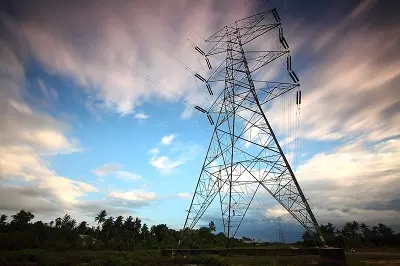 You will likely have seen the recent news that the National Grid is preparing contingencies for the worst-case scenario that planned power outages are necessary this winter due to the volatile energy situation at the moment. It is by no means a certainty that this will be necessary, but the some of the specifics have been outlined in the event that it is.
You will likely have seen the recent news that the National Grid is preparing contingencies for the worst-case scenario that planned power outages are necessary this winter due to the volatile energy situation at the moment. It is by no means a certainty that this will be necessary, but the some of the specifics have been outlined in the event that it is.
The plan as it stands will be for regional 3 hour outages, notified 24 hours in advance. However, the "Electricity Supply Emergency Code" document also includes the possibility that these outages could extend to a full 24 hours in extreme circumstances. There are 18 power "regions" in the country. In the 3 hour version of the plan, the outages will cycle daily through these in eight 3 hour blocks, the first starting at 12:30am, and the last at 9:30pm.
From a personal perspective, a plan of this nature is likely to be an inconvenience. However, from a business perspective, there are various factors that are worth considering sooner rather than later.
Unless you work in one of the few workplaces so essential that energy supply is guaranteed, should this situation come to pass, you will need a plan to work round these outages.
Servers
 The first thing to consider here is that unless you have an onsite generator, it will not be possible to work as usual through these outages for obvious reasons. Top of the list of concern here is servers. Servers do not react well to being powered off without warning. In worst-case scenarios, this can cause the server to fail entirely. Therefore, if you have an onsite server, you will need a plan to shut these down in plenty of time before that happens. If you have a UPS, there will be a little more leeway with the timing here, so you may want to consider getting one of these if your circumstances allow it.
The first thing to consider here is that unless you have an onsite generator, it will not be possible to work as usual through these outages for obvious reasons. Top of the list of concern here is servers. Servers do not react well to being powered off without warning. In worst-case scenarios, this can cause the server to fail entirely. Therefore, if you have an onsite server, you will need a plan to shut these down in plenty of time before that happens. If you have a UPS, there will be a little more leeway with the timing here, so you may want to consider getting one of these if your circumstances allow it.
Network Devices
Other network infrastucture such as modems, routers and switches are not as sensitive to outages, so can be immediately powered down if necessary. Naturally, as soon as these devices are off, the internet connection will drop and any wifi / hardwired connections from all the devices on the network will stop working. You could consider a backup 4G router, although you'd need some way of powering that, along with any devices you wanted to connect to it.
PCs and Laptops
 Desktop PCs will generally be OK with an outage, although we have seen issues in rare cases, so it would be better to shut these down in advance. Obviously, laptops will have fewer problems here as long as their battery is charged, although they will lose connection to any local resources including the internet due to the issues above. One thing that's easy to forget in our "always on" way of doing things now - if you're on some sort of cloud / external server making changes and don't save those before the internet goes down, you may lose those changes by the time you can reconnect. In other words, plan for this in advance and don't push things up to the wire!
Desktop PCs will generally be OK with an outage, although we have seen issues in rare cases, so it would be better to shut these down in advance. Obviously, laptops will have fewer problems here as long as their battery is charged, although they will lose connection to any local resources including the internet due to the issues above. One thing that's easy to forget in our "always on" way of doing things now - if you're on some sort of cloud / external server making changes and don't save those before the internet goes down, you may lose those changes by the time you can reconnect. In other words, plan for this in advance and don't push things up to the wire!
Remote workers
You may need to consider offsite workers in this scenario too. In most cases, they are likely to experience any outages as the same time as the office. However, in some cases, they will be further afield and be on a different outage rota. It is important that they are aware that not only will they have their own outages to work around, they will lose access to any office resources whenever the office is powered down.
The purpose of this article is not to be alarmist. As we mentioned at the start, there is currently only an outside chance of this being necessary. Nevertheless, it is exactly the sort of thing that becomes a lot harder to mitigate if plans (and any hardware that might suggest) are not in place well in advance. There may well be concerns specific to your business that we haven't considered here. As ever, just let us know if you think we can assist in any advance planning you undertake here.
